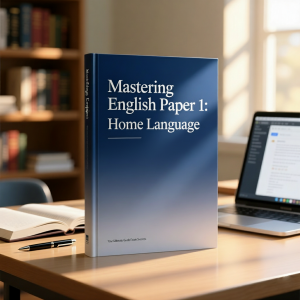Studying for exams can be stressful, and many students think that reading their whole textbook is the best way to prepare. But here’s the truth: studying your textbook alone won’t give you the best marks. To really improve, you need to use past exam papers. They are one of the most effective tools to help you prepare. Let’s look at why they work so well.
Familiarity With Exam Format
Using past exam papers helps you get familiar with the structure of exams. Most exams follow a consistent format, including sections like multiple-choice questions, short answers, and essays. By practicing with these papers, you’ll know exactly what to expect, which helps reduce stress on exam day.
This familiarity is especially useful if you’re writing exams for the first time or taking a new subject. When you already understand how the paper is organized, you can focus entirely on answering the questions rather than figuring out the format.
Spotting Patterns in Questions
When you use past papers, you’ll begin to notice patterns in how questions are asked and which topics appear most often. This allows you to focus your revision on the areas that matter most instead of spreading yourself too thin. You’ll also see how questions are typically phrased, which gives you an idea of what the examiner is looking for.
Spotting patterns saves time and effort, making your studying more effective. Instead of trying to memorize everything, you can concentrate on the topics and types of questions that are most likely to come up. This targeted approach increases your chances of success.
Some Questions Repeat Themselves
One of the biggest advantages of using past papers is that examiners sometimes repeat questions. These repeated questions might be identical or slightly modified, but having seen them before gives you an edge.
When you encounter a question in your exam that you’ve already practiced, it feels like a bonus. It allows you to save time and answer with confidence. This is why consistent practice with past papers is such a smart way to prepare.
Questions May Be Changed Slightly
Even if questions aren’t repeated exactly, they’re often reworded or adjusted slightly. For example, a math question might use different numbers, or a science question could phrase the same concept in a new way. Practicing with past papers teaches you to adapt to these changes while still applying the same methods to find the correct answer.
This skill is crucial because exams often test your ability to think critically and apply what you’ve learned. By practicing with varied questions, you’ll develop the flexibility needed to tackle any curveballs the examiner throws your way.
Studying One Past Exam Paper Per Subject Is Not Enough
Using just one past exam paper for each subject won’t give you the full benefits of this method. You need to use papers from multiple years to see a broader range of questions, understand how topics are covered over time, and notice any evolving patterns.
Different years might emphasize different parts of the curriculum, so practicing with several papers ensures you’re well-prepared for anything. This variety also helps you develop a deeper understanding of the subject and makes you less likely to be caught off guard on exam day.
Understanding Exam Duration and Time Management
Practicing with past papers helps you understand how much time you’ll have during the exam and how to manage it effectively. Timing yourself while answering the questions gives you a realistic sense of how long each section will take and helps you practice pacing.
This is particularly important for exams with essays or long-answer sections. You’ll learn how to allocate enough time to each question, ensuring you finish the paper without leaving anything blank. Time management is a skill that improves with practice, and past papers are the perfect way to develop it.
Builds Confidence and Reduces Anxiety
Practicing with past exam papers doesn’t just improve your knowledge—it boosts your confidence. The more you practice, the more familiar the process becomes, which helps reduce the fear of the unknown. When you feel prepared, you’ll approach your exam with a calm, focused mindset.
Confidence is a key factor in exam success. If you’ve already worked through similar questions under similar conditions, you’ll feel less nervous and more capable of handling the pressure. This mental preparation is just as important as knowing the material.
How to Use Past Exam Papers Effectively
- Use past papers from at least three to five previous years for each subject.
- Practice under timed conditions to simulate the real exam.
- Compare your answers with the marking guide to identify areas for improvement.
- Revisit and practice questions you struggled with until you fully understand them.
Following these steps ensures that you’re not just practicing but practicing effectively, which will lead to better results.
Conclusion
Past exam papers are one of the most powerful tools for exam preparation. They help you understand the format of the exam, identify important patterns, practice time management, and build confidence. However, don’t limit yourself to just one paper per subject—using multiple years’ worth of papers gives you the best chance of success.
While your textbook provides the knowledge, past exam papers teach you how to apply it in a real exam setting. Visit the Past Exam Papers section on our website to find resources for all your subjects and start practicing today. With the right preparation, you’ll be ready to achieve your best results.


